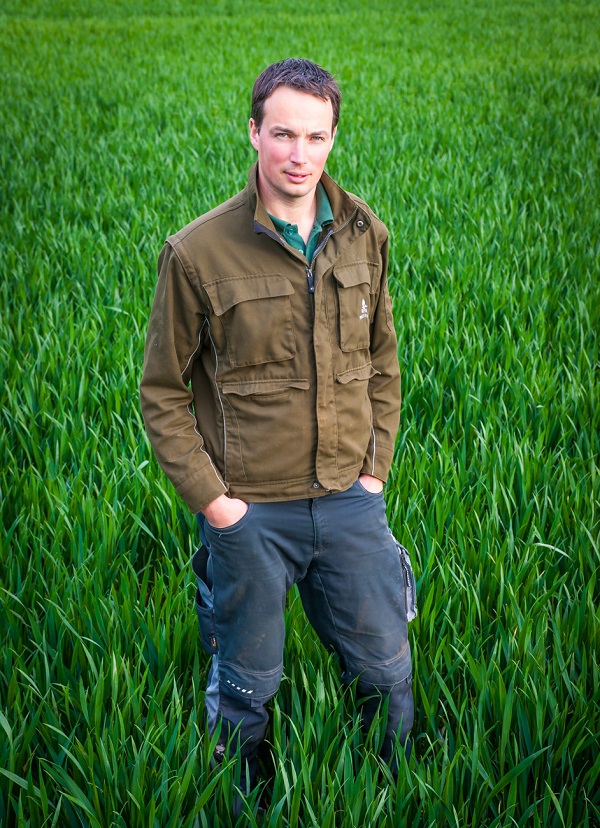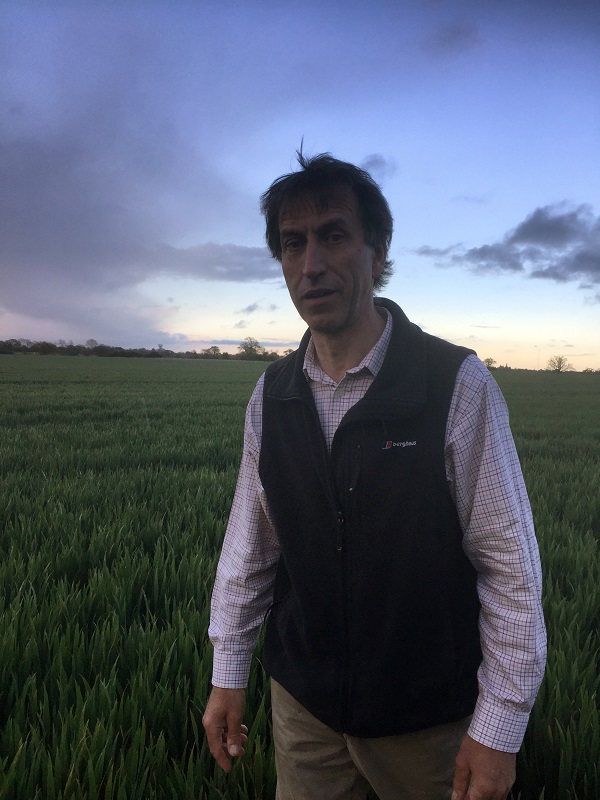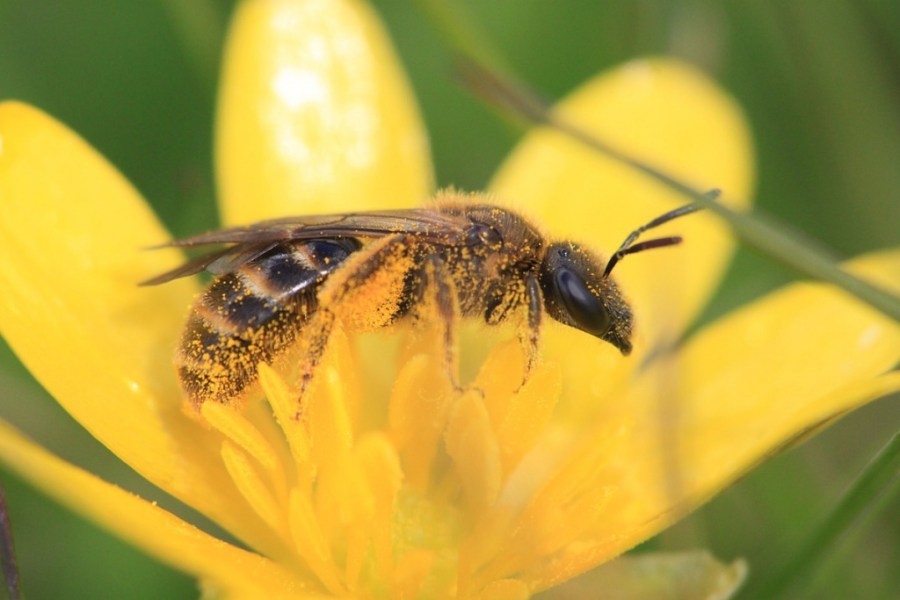With an EU proposal to widen the ban on neonicotinoids to include all non-flowering crops, the implications to growers could be severe. CPM takes a look at this looming issue, due to be debated in Brussels this month.
By Rob Jones
How would a world without neonicotinoids look? With the European Commission’s recent proposed ban on the seed treatments across all field crops, the question is more relevant than ever before. And according to figures across the industry, the answer’s not a pleasant one.
One pressing concern is that the ban would have a major impact on UK growers due to the increased number of pyrethroid sprays they would have to use to match the effect of these lost seed treatments.
And according to Dr Steve Foster, resistance expert at Rothamsted Research, banning neonicotinoids, and the subsequent increase in pyrethroid sprays, could result in further problems for growers in the future.
Diversity is key
“Diversity is key for resistance management and safeguarding active ingredients to ensure growers have actives that work. By having both neonicotinoids and pyrethroid sprays available, growers can target pests in a number of ways, limiting selection pressure,” he explains.
“Losing neonicotinoids would reduce the options available to growers and would undoubtedly increase pest selection pressure.”
Increasing the number of insecticide sprays is not exactly something growers are eager to do, but they will have no choice if neonicotinoids are no longer available, believes James Price, farm manager at Perdiswell Farm in Oxon.
“We don’t want to use more insecticides, but without seed treatments it’s our only option. Our business is growing crops and we have to maximise productivity. If you keep taking tools like seed treatments away, it’ll get to the point where people say it’s not worth growing wheat because of the time and cost.

James Price can’t see an alternative to using more pyrethroids if neonics are banned.
“Aphid resistance to insecticides will only increase if we get pushed down the route of broad-spectrum insecticides. We don’t want to take this route, but what else will we use if we can’t have neonicotinoids?”
One of the principle reasons growers use neonicotinoids is to control barley yellow dwarf virus (BYDV). However, with around 60% of grain aphids in some areas of England already displaying resistance to pyrethroid sprays, Steve Foster says that losing neonicotinoids could end up leaving growers without any options.
“It took a matter of years for grain aphids carrying resistance to pyrethroids to become prevalent, and that was in the presence of alternatives such as neonicotinoids. It’s certainly possible that the other BYDV vector, bird-cherry aphid, could go the same way if neonicotinoids were banned.”

Nigel Adam predicts an additional 1-2 million ha would need pyrethroid application.
Nigel Adam, development manager at Bayer, agrees. “An extra 1-2 million ha would need to be sprayed with a foliar insecticide to equal the effects of neonicotinoid, clothianidin (Deter), against BYDV vectors. This obviously isn’t as targeted an approach as a seed treatment.”
While the options to treat BYDV would be limited, for sugar beet growers a ban on neonicotinoids would currently leave them with no treatment options against beet virus yellows, a situation which would seriously challenge the UK sugar industry.
Out of options
“Sugar beet growers have become reliant on neonicotinoids to protect the crop from peach potato aphids, the vector for beet virus yellows – at present there are no alternative treatments. Neonicotinoids are currently used on 99% of sugar beet in the UK, and without the yield protection they provide, growers would undoubtedly see a significant impact.
“If neonicotinoids were lost, the yield losses of infected plants could be up to 49%. In addition to virus yellows, neonicotinoid seed treatments also provide protection against soil and foliar pests which could cause additional yield losses,” he adds.

James Black is concerned that sugar beet would no longer be a viable crop on his farm.
In the heart of Suffolk, James Black farms 1200ha, and has a four-year rotation including two break crops; sugar beet and oilseed rape. He has big concerns for the future of the sugar beet industry should the proposed ban be approved.
“In the absence of a hard winter, crops would be under pressure from aphids from the outset without protective seed treatments. Their loss would threaten the long-term future of the industry and for many growers, including myself, sugar beet would become a risky and ultimately untenable crop,” he says.
OSR declining
A shrinking acreage due to a ban on seed treatments is not unfamiliar to growers in the UK. The ban on neonicotinoids in OSR in 2013 has seen the crop acreage decline for four consecutive years, but as Steve Foster highlights, this ban has also had a negative impact on the very insects perceived to be at risk.
“Similar to the situation in sugar beet, where we have pyrethroid resistance in peach-potato aphids, cabbage stem flea beetles in OSR are also resistant to pyrethroid sprays. So the ban on neonicotinoids in this crop has left growers with no way of controlling the pest because they have no other viable alternative active ingredients.
“This has been the main cause of the reduction in OSR acreage, which has decreased by 20% in the last four years. In the cabbage stem flea beetle hotspots, some growers have removed the crop entirely from the rotation.
“We think this is bad news for bees, as they use OSR as a foraging crop, and many beekeepers are very concerned about further reductions in the area of OSR.”

Steve Foster believes the decrease in OSR area due to the current ban is bad news for bees.
James Black cites his experience with OSR since the moratorium on neonicotinoid seed treatments was introduced in December 2013.
“As products are withdrawn and resistance increases to those actives that remain, I become increasingly fearful for the future of our industry. Our use of insecticides has increased about 150% compared with what we used in 2010, simply because of the limited efficacy of the alternatives.”
Steve Foster agrees that seed treatments are a much more targeted means of control than the alternative insecticide sprays.
“The effects of the proposed neonicotinoid ban on all field crops would be a ‘double whammy’ for both UK growers and the environment. We must ensure growers have diverse control options available to them, for their sake, the sake of the environment and for the good of resistance management,” he concludes.
Bayer calls growers to action
In March 2017, the European Commission submitted new proposals to a Standing Committee of Member States called SCOPAFF (Standing Committee of Plants, Animals, Food and Feed) to ban all outdoor uses of neonicotinoid seed treatments in non-bee-attractive crops such as wheat, barley, sugar beet and veg. These are your seed treatments. We need you to understand the arguments, hear what people are saying so that common sense wins.
Act Now #SaveOurSeedTreatments




